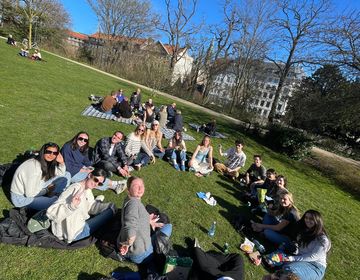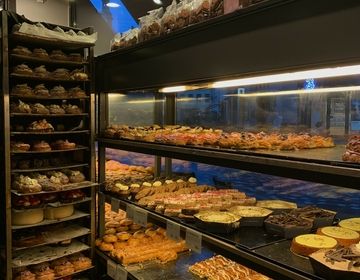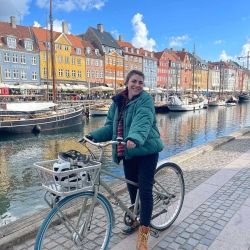Part 5: Reverse Culture Shock is Real
My home university required all study abroad participants to go through cultural awareness training prior to departure. This included how to properly dress, climate differences, alcohol consumption, language differences, etc. On top of what you would expect, my home advisor cautioned us that while culture shock in your host country is expected, many students are surprised by “reverse culture shock”. As I’m sure you can guess, reverse culture shock is what many returning study abroad students feel as they adjust back to normal life in the States.
Yes, it is true. It hit me like a truck.
I returned back to the US on May 15th and felt this phenomenon immediately. Going from using public transportation and walking everywhere to sitting in my mom’s minivan in New York-Long Island traffic was the biggest culture shock of all.
Surprisingly, I think not knowing a language fluently and not understanding what’s going on around you at all times became a comfort while in Denmark and in the other foreign countries I visited. I feel that I get overwhelmed and mentally overstimulated very easily when a lot is going on but if I don’t know what people are saying, it isn't as overwhelming. Maybe that’s an odd way to look at it but I grew to love not hearing English 24/7.
I don’t really pay attention to many New Yorker stereotypes- trust me, I heard all about them whenever I told someone I was from here- but returning back to the state in May after living with a notoriously quiet population... was quite shocking.
Suddenly I was aware of just how loud people talk in restaurants, on public transportation, in grocery stores. Literally everywhere.
I would say the hardest thing to deal with was being so excited to share my experiences with people but feeling like no one really understood. Yes, people would listen to my stories and let me talk about it but no one except my study abroad friends would ever really care.
That’s the harsh reality of it. I never took it personally but it got easier with time.
On top of that, for the first couple weeks my sleep schedule was terrible. I would fall asleep at 8pm every night like clockwork and wake at 4am unable to go back to sleep. I would try various different methods to get myself to stay awake longer but it took one night of staying up till 12am to do the trick and get me back to a normal sleep cycle.
It’s also normal to question the future once you return home.
I entered college wanting to go to medical school. In fact, I was pretty set on it. Cardiothoracic surgery to be exact. I was taking my pre-requisites at my university; all the hard sciences.
I don’t want to be a surgeon anymore.
And that’s okay.
Living in and exploring Scandinavia made me fall in love with the region. Mixed with my love for healthcare, I am currently in the beginning phases of doing independent research on the Arctic and Nordic countries as they relate to global health. My new goal for the future may not be as shiny as the "medical doctor” title, but life throws curveballs at you sometimes and it’s up to you if you want to pursue them or not.
I am incredibly excited to see where this new path takes me; ideally to the Arctic in the next couple years. But if I’ve learned anything from this past year, it’s that saying yes to as many things as possible and stepping outside your comfort zone brings you amazing people and incredible experiences. You should try it sometime.
Related Posts

The Bike Trip That Didn't Happen (Yet)
Written by Catherine Ripsteen student from Open Campus Spring Block 3 2025: The Bike Trip That Didn't Happen Date: 4/02/25 Copenhagen is consistently ranked as one of the world’s most... keep reading
Horseback Riding in Madrid
By: Shafa Abbas Madrid offers an abundance of amazing experiences—iconic activities like visiting the Museo del Prado or strolling through El Retiro Park. But for me, the most unforgettable thing... keep reading

Hygge: One of the best parts of Danish culture
Written by: Grace Beaster a student from: Open Campus Sring Block 1 2025 One of the best parts of Danish culture that I’ve discovered while here is a concept called... keep reading
